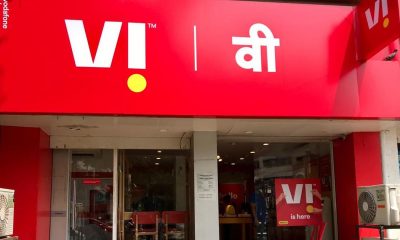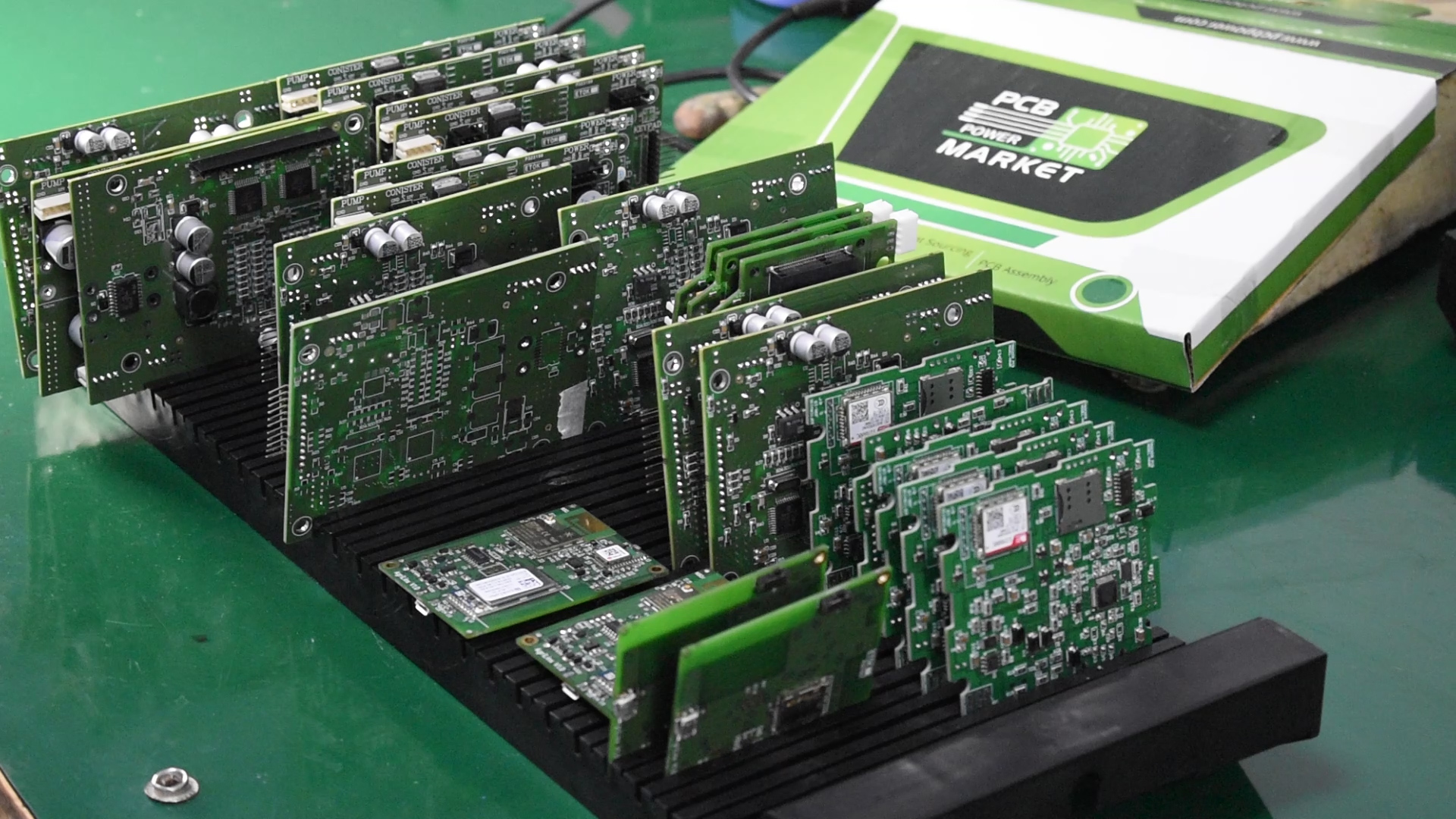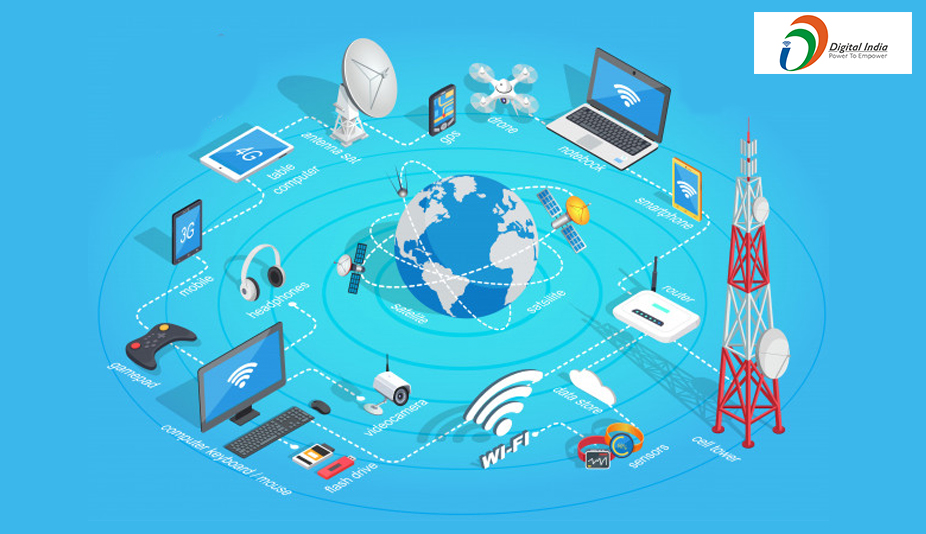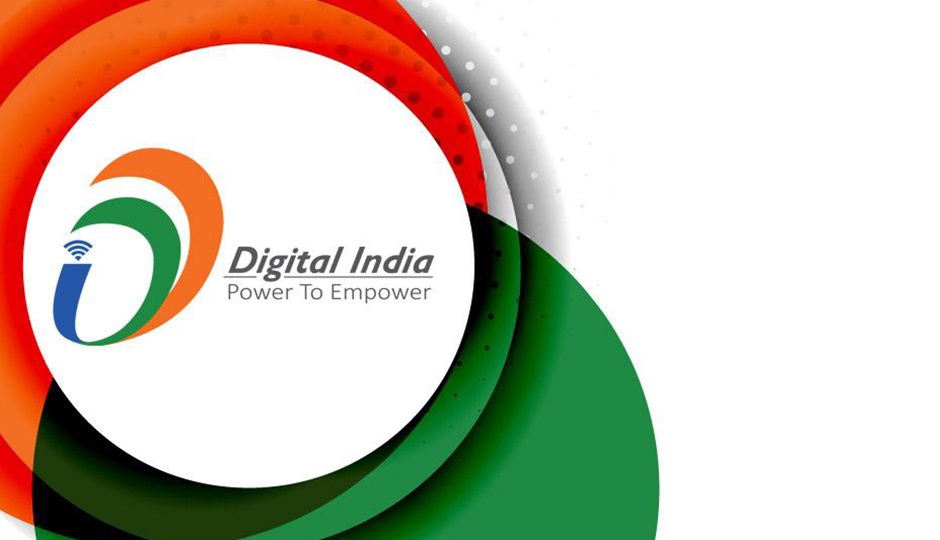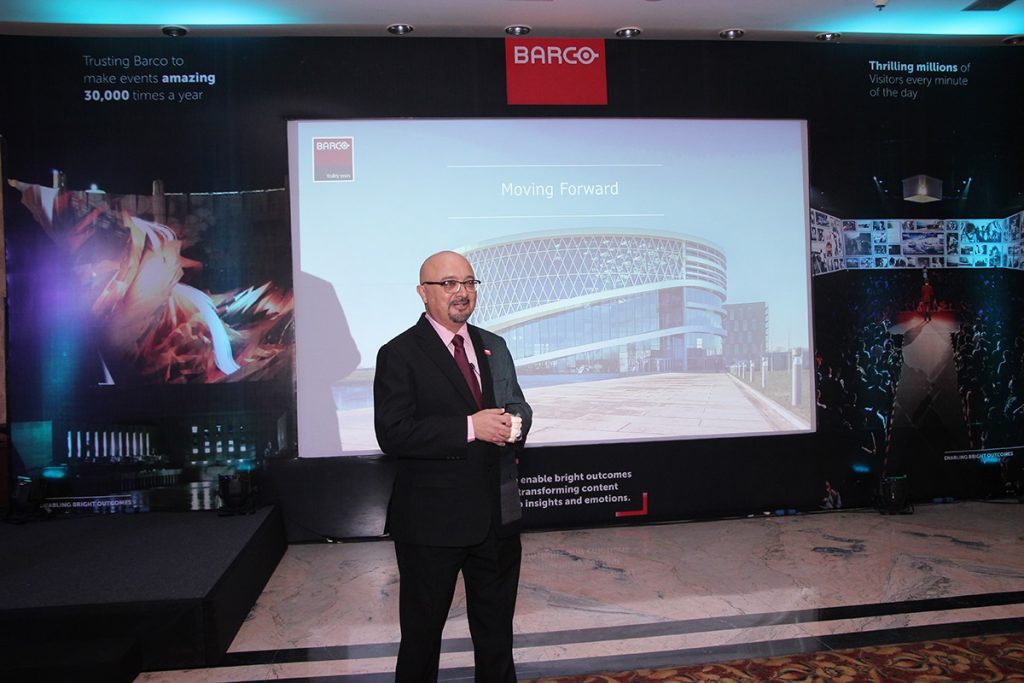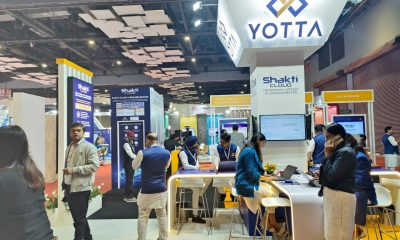Mobile Services
Digital India can only grow via open source
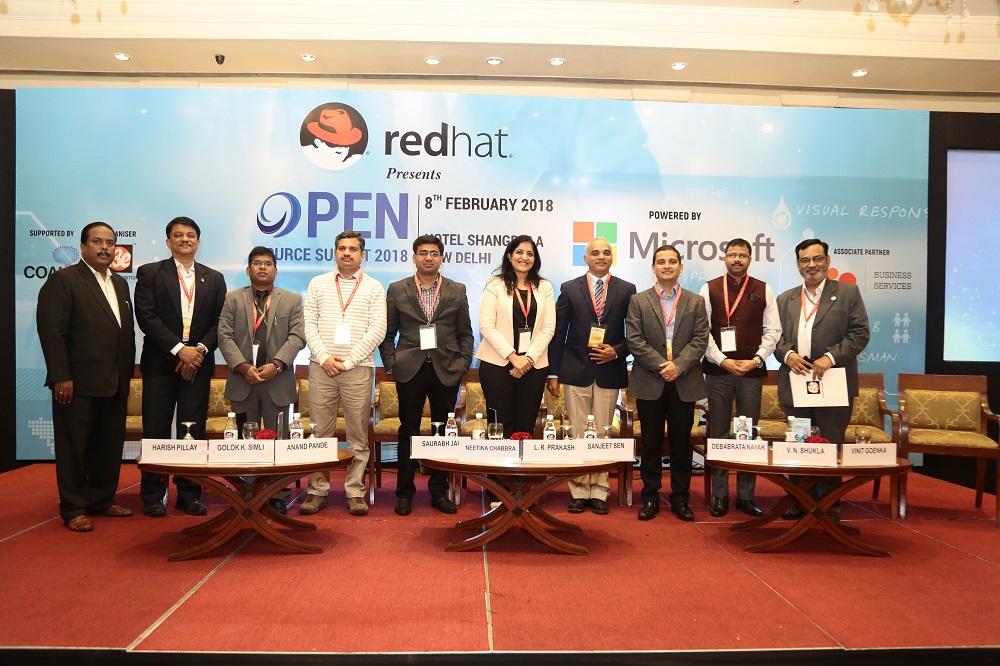
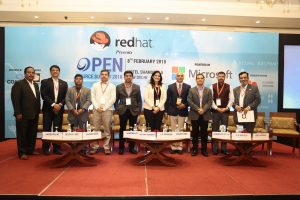 NEW DELHI: The Open Source Initiative is celebrating its 20th Anniversary in 2018 as the term was coined in a session held on February 3rd, 1998 in Palo Alto, California.
NEW DELHI: The Open Source Initiative is celebrating its 20th Anniversary in 2018 as the term was coined in a session held on February 3rd, 1998 in Palo Alto, California.
In the last 20 years, the initiative has come a long way. Acknowledging the importance of ‘open source initiative’ which continues to play in our lives and to enable open discussion on the challenges that exist and to work out strategies to iron them out, Bharat Exhibition organised an ‘Open Source Summit 2018’ in New Delhi on February 08, 2018.
In India, we see Government increasingly use ‘open source’ and it has already started to disseminate more information and offer more services online these days. The Government initiative of Digital India demands that open source be used more widely not just to save costs and time but also to ensure implementation of some of the ambitious plans effectively.
There is a need to connect new websites and applications to older ones, as well as across departments. To avoid having to rewrite old software code to function with new apps, Governments are encouraging developers to use software with built-in open standards. The primary goal of employing open source in government is also to facilitate the transfer of data as smoothly as possible. Open-standards proponents say that this approach would lead to more innovation within government and better citizen services. The forum analysed the success stories that have been achieved and what are the real challenges that might be slowing down the growth.
While delivering the keynote address, Harish Pillay, Global Head, Community Architecture and Leadership, Red Hat Inc. “Digital India is a great initiative by the government of India and is gaining momentum. Open Source is an extremely important aspect of Digital India!”
Addressing the challenge about security, Pillay shared that, “Open source is more secure because we have more people looking at the code. If there’s a vulnerability, there is a bigger chance for it to be quickly detected and addressed. When everyone collaborates, the best technology wins.”
Neetika Chabbra, Chief Architect & Founding Partner, Gaia Smart Cities said, “The world is going towards a shared economy where assets are being shared. Now even assets such as IPs are coming out as collaborative efforts, where people are coming together to create a solution, a product, to create a service for general public”.
Talking about strategy for open source, V. N. Shukla, Senior Director (IT), Election Commission of India said, “If you look at the definition of open source that was given 30 years ago it is about the core program only. It never spoke of any product, service or anything else. Essentially the stakeholder was expected to be a technical person and not an end user. So, there is a need to redefine the terminology and get the end user in the picture.”
Talking about the policy framework in the country regarding ‘open source’, Debarata Nayak, Project Director (Open Source Collaboration) & Additional Director, Digital Locker, National e-Governance Division (NeGD), MeitY, Govt. of India, said, “ We should look at ways to reuse the product. If we reuse, the modification will automatically happen and it will automatically be a much richer product”. He spoke about the need of collaboration within the government to make the code being available freely for modification and only then mass replication can happen that will in turn benefit the society.
Giving a perspective on the implementation side, Golok Kumar Simli, Chief Technology Officer, Passport Seva Project, Ministry of External Affairs, Government of India, said, “The idea is when you are bringing open source at the developer platform, your internal team has to be very guided to know which area of the product is in the part of the development set-up or coding set-up”.
He mentioned that he has observed that most times while using open source, developers are tempted to use and reuse the same code without checking for security concerns and updates. Licensing is the other concern area pointed by Simli.
Continuing on the talk of implementation, L R Prakash, Director, C-DAC, Chennai, said, “The policy in isolation does not translate into implementation. There has to be an ecosystem around the same. There are procurement issues and awareness is a challenge. Also, one needs to tangibly answer to every user, what is in it for them and everyone approaching the government section must be able to answer this.” He concluded by saying that there is a need to spread awareness about open source right at the grassroots level.
Anand Pande, Senior Vice President & CISO, Goods and Services Tax network (GSTN) pointed out another challenge that they have been facing while using open source is integration. He said, “it is a challenge to integrate or make all the tools and technologies work together and give the desired results”.
Sourabh Jain, Head Paytm – Build for India, Paytm said, “There is no community around open source in India. While 90% of the people use open source but they don’t contribute to it.”
Sanjeet Sen, Product Marketing Lead – Open Source on Azure, Microsoft said, “Everyone needs to focus on the business challenges rather than the underlying tech. Technology should be just an enabler in the process. Public cloud is basically enabling all the organisations to have that pace and agility to help businesses solve their complex business problems”.
This event was endorsed and supported by Cellular Operators Association of India (COAI), Red Hat and Microsoft . The ‘Open Source Summit 2018’ brought together leaders across government, business and academia under one roof, who debated on the topics affecting the adoption of ‘Open Source’ and discuss some of the case studies that have set a benchmark for many to follow.
5g
Airtel announces its largest ever 5G roll-out in 125 cities
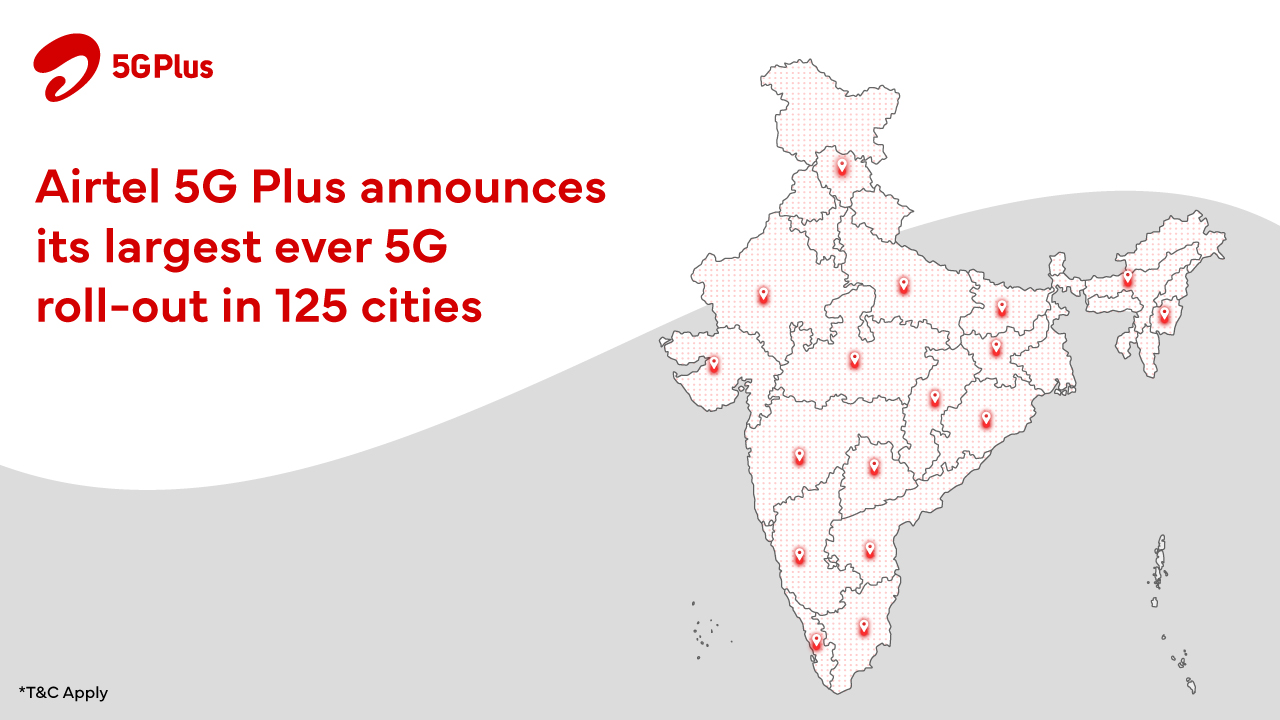
NEW DELHI: Bharti Airtel, India’s telecommunications services provider, today announced the launch of its ultra-fast 5G services in 125 cities. Airtel 5G Plus service is now available to customers in over 265 cities in the country.
Airtel 5G Plus has three compelling advantages for customers. First, it runs on a technology that has the widest acceptance in the world with the most developed ecosystem. This ensures that all 5G smartphones in India seamlessly work on the Airtel network. Second, the company promises to deliver the best experience – between 20 to 30 times higher speeds than today coupled with brilliant voice experience and super-fast call connect. Finally, Airtel 5G Plus network will also be kinder to the environment with its special power reduction solution. Powered by the reliable Airtel network infrastructure, Airtel 5G Plus will provide superfast access to High-Definition video streaming, gaming, multiple chatting, instant uploading of photos et all.
Commenting on the launch, Randeep Sekhon, CTO, Bharti Airtel said, “5G has revolutionized the world of internet, ushering new era of connectivity and communications that will prove to be a game-changer for the country. At Airtel, we remain committed to delivering the highest quality of network and service to our customers as we roll-out 125 more cities today. Airtel was the first in the country to offer 5G services in October 2022, and today’s mega launch is our promise to connect every Airtel customer in the country with ultra-fast Airtel 5G Plus. Our 5G rollout is on track to cover all towns and key rural areas by March 2024.”
Airtel 5G Plus service availability will continue to rapidly expand – including service in all towns and villages in the country soon – as the company is working towards offering nationwide coverage. Airtel is now offering its 5G services in every major city from the upper northern city of Jammu to the southern tip of Kanyakumari.
In the last one year, Airtel has demonstrated the power of 5G with a host of powerful use cases that will change the way customers lead their lives and do business. From India’s first live 5G network in Hyderabad to India’s first private 5G network at the BOSCH facility in Bengaluru to partnering with Mahindra & Mahindra to make its Chakan manufacturing facility, India’s first 5G enabled auto manufacturing unit, Airtel has been at the forefront of 5G innovation.
5g
Apple rolls out beta programme for iPhones to enable 5G services

NEW DELHI: Apple Inc has rolled out a beta programme to enable 5G on Apple devices as the upgrade lets users try out pre-release software.
This software upgrade enables 5G access on Apple devices, as and when service providers Jio, Airtel and Vodafone enable 5G network access, sources said.
Apple Users have to enrol for the Beta Programme on the website, install a profile and download the software.
Jio users using iPhone 12 and above, in cities where JioTrue5G has been rolled out, will be invited to the Jio Welcome Offer. Jio Welcome Offer provides unlimited 5G data at up to 1 Gbps speed to users at no additional cost. However, there is a condition that prepaid users must be on active Rs 239 and above plan. All Postpaid users are eligible for this trial.
Airtel is not providing any special 5G offer like Jio to their users. In the cities/areas in which the Airtel 5G network has been launched, users can trial 5G services as a part of their existing plan, once they have updated the latest Apple Beta software.
While an email sent to Apple did not solicit an immediate response, the firm had last month stated: “We are working with our carrier partners in India to bring the best 5G experience to iPhone users as soon as network validation and testing for quality and performance is completed. 5G will be enabled via a software update and will start rolling out to iPhone users in December”.
Airtel and Jio customers on iPhone 14, iPhone 13, iPhone 12 and iPhone SE (3rd generation) models can experience 5G as part of Apple’s iOS 16 Beta Software Program. The Apple Beta Software Program is open to anyone with a valid Apple ID who accepts the Apple Beta Software Program Agreement during the sign-up process.
If a user has an iCloud account, that is an Apple ID, it is recommended they use that. If they do not have an iCloud account or any other Apple ID, they can create one.
Customers who want to try the beta software should back up their iPhones before installing the beta software. It is recommended to install the beta software only on non-production devices that are not business-critical. Users can also provide feedback to Apple on quality and usability, which helps Apple identify issues, fix them, and make Apple software even better.
The iOS beta comes with the built-in Feedback Assistant app, which can be opened from the Home screen on the iPhone or iPad or from the Dock on the Mac.
Source: Press Trust of India
5g
Nokia wins multi-year deal with Reliance Jio India to build one of the largest 5G networks in the world
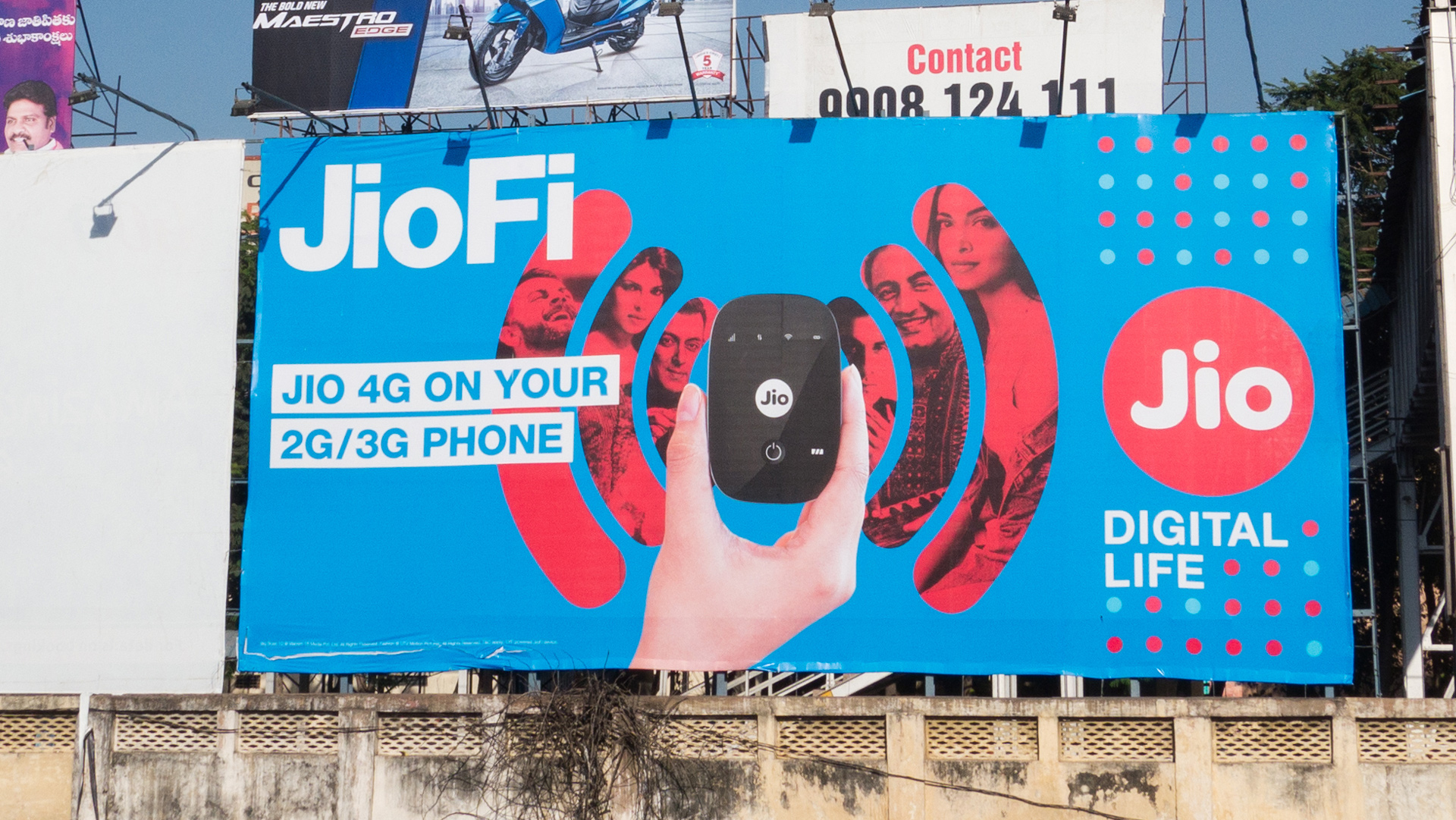
NEW DELHI: Nokia has announced that it has been selected as a major supplier by Reliance Jio to supply 5G Radio Access Network (RAN) equipment from its comprehensive AirScale portfolio countrywide in a multi-year deal. Reliance Jio is India’s number one mobile operator and has one of the largest RAN footprints in the world.
Under the contract, Nokia will supply equipment from its AirScale portfolio, including base stations, high-capacity 5G Massive MIMO antennas, and Remote Radio Heads (RRH) to support different spectrum bands, and self-organizing network software. Reliance Jio plans to deploy a 5G standalone network which will interwork with its 4G network. The network will enable Reliance Jio to deliver advanced 5G services such as massive machine-to-machine communications, network slicing, and ultra-low-latency.
Akash Ambani, Chairman Reliance Jio, commented: “We are pleased to be working with Nokia for our 5G SA deployment in India. Jio is committed to continuously investing in the latest network technologies to enhance the experience of all of its customers. We are confident that our partnership with Nokia will deliver one of the most advanced 5G networks globally.”
Pekka Lundmark, President and CEO at Nokia stated: “This is a significant win for Nokia in an important market and a new customer with one of the largest RAN footprints in the world. This ambitious project will introduce millions of people across India to premium 5G services, enabled by our industry-leading AirScale portfolio. We are proud that Reliance Jio has placed its trust in our technology and we look forward to a long and productive partnership with them.”
Nokia has a long-standing presence in India. This new deal will mean that Nokia is now supplying India’s three largest mobile operators.

